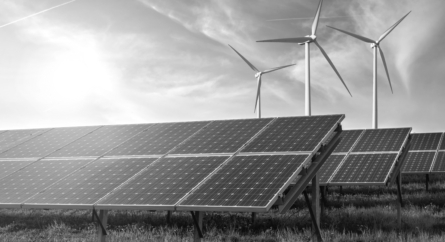Leading the Way to a Greenhouse Gas Limited Future, 29 Massachusetts Cities and Towns Opt in to the Commonwealth’s Specialized Energy Code
As of November 19, 2023, twenty-nine cities and towns have opted in to the Specialized Energy Code by local legislative action. The towns include Brookline, Cambridge, Somerville, Watertown (effective July 1, 2023); Acton, Aquinnah, Arlington, Boston, Concord, Lexington, Lincoln, Maynard, Newton, Northampton, Sherborn, Stow, Truro, Wellesley and Wellfleet (effective January 1, 2024); Amherst, Bedford, Carlisle, Chelmsford, Medford, Needham, Norwood, Wakefield and Worcester (effective July 1, 2024); and Belmont (effective January 1, 2025). Two hundred seventy-two municipalities have adopted the Stretch Energy Code and fifty municipalities require only the Base Energy Code.
The Specialized Code was developed pursuant to “An Act Creating A Next-Generation Roadmap for Massachusetts Climate Policy” St. 2021, c. 8, now M.G.L. c. 25A, § 6 (the “Climate Act”), which transferred the authority to promulgate regulations for the Stretch Code to the DOER. The Specialized Code is effective only in those municipalities that “opt in” to its provisions by vote of a city or town’s legislative body. The goal of the Specialized Code is to ensure that new residential and commercial construction is consistent with Massachusetts greenhouse gas limits and sub-limits set every five years from 2025 to 2050.
The Stretch Code and Specialized Code regulations promulgated as 225 CMR 22.00 (for low rise residential construction) and 225 CMR 23.00 (for commercial, multi-family and all other construction) establish energy efficiency compliance pathways for both all electric and mixed-fuel buildings, requiring that new mixed-fuel residential and commercial buildings be pre-wired for future electrification.
The Specialized Code contains specific requirements for new dwellings smaller than or equal to 4,000 square feet conditioned floor area; those greater than 4,000 square feet conditioned floor area; and multifamily housing. For a high-level summary of the Stretch Code and Specialized Code, see the DOER’s September 2023 “reference and instructional guide for Massachusetts Energy Stretch and Specialized Codes.”
The Base Energy Code, created pursuant to the Green Communities Act of 2008 (St. 2008, c. 169) and by administrative action in 2009, is an appendix to the Massachusetts State Building Code, promulgated by the Board of Building Regulations & Standards (BBRS) as 780 CMR (“Building Code”). The Building Code, current in a proposed Tenth Edition, is comprised of certain international model codes, including among others the International Building Code (IBC) and International Energy Conservation Code (IECC) and certain state-specific amendments adopted by the BBRS.
The Base Energy Code provides a prescriptive method and a performance-based method to achieve specific energy efficiency levels. The prescriptive method allows for the achievement of energy efficiency via the use of specific building elements. By contrast, the performance-based method measures energy efficiency through a third-party Home Energy Rating System (HERS) or Passive House analysis. The Green Communities Act requires that Massachusetts update its Base Energy Code every three years to be consistent with the most recent version of the IECC. The current Base Energy Code consists of IECC 2021 plus Massachusetts amendments updated as of July 2023.
Categorized: Construction, Energy
Tagged In: Base Energy Code, climate policy, energy efficiency, green communities






